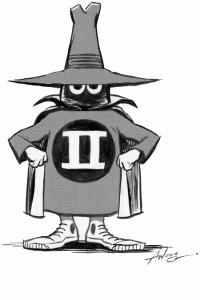Search the Community
Showing results for tags 'Taxes'.
-
https://www.channelnewsasia.com/singapore/import-cars-jail-tax-gst-duty-evasion-fined-4064701 Low Han Siang, the sole proprietor of car importer M’ Exclusive, will serve 69 months' jail in total. SINGAPORE: A man was fined S$6 million (US$4.4 million) last Friday (Jan 19) for evading duty and Goods and Services Tax (GST) on 1,828 motor cars imported into Singapore. As he failed to pay the fine, Low Han Siang, the sole proprietor of car importer M’ Exclusive, will serve a jail term of 60 months in default. He was also sentenced to an additional nine months' jail for underpaying the Additional Registration Fee (ARF) during the registration of the vehicles. The ARF is a tax imposed when a vehicle is registered, calculated based on a percentage of the Open Market Value of the vehicle. Low, 46, had pleaded guilty to two charges under the Customs Act for evading over S$1.8 million in taxes and duties incurred from importing 1,141 motor vehicles, including brands like Mercedes, Porsche and Tesla, into Singapore between 2017 and 2021. The Singaporean also pleaded guilty to two amalgamated charges of giving incorrect information under the Road Traffic Act. Another two charges of fradulent evasion of GST, six charges of fradulent evasion of duty and GST, five charges of causing an incorrect declaration to be made and four amalgamated charges for giving incorrect information were taken into considering during sentencing. HOW LOW WAS CAUGHT An investigation into M’Exclusive was launched after the car importer was suspected of under-declaring the values of motor vehicles for assessment of duty and GST payable, Singapore Customs said in a press release on Monday. Investigations found that from April 2017 to June 2021, Low created false invoices or asked his suppliers to issue multiple invoices with partial values to conceal the actual values of the imported cars. These invoices were then submitted to Singapore Customs for assessment of duty and GST payable. The suppression of the values of the 1,828 motor cars imported into Singapore between April 2017 and June 2021 resulted in the short payment of duty and GST amounting to about S$3,263,280. It was also discovered that Low had instructed his employee, Lee Pak How, to falsify invoices with suppressed values determined by Low. Lee, a 33-year-old Singapore permanent resident, was fined S$10,000 on Jan 13 after pleading guilty to one charge of falsification of documents. DECLARED VALUES OF IMPORTED MOTOR CARS Singapore Customs said it “closely monitors" the declared values of motor cars imported into Singapore and "will not hesitate to take enforcement actions on errant traders”. The agency added it maintains a "robust commitment" to combat fraudulent evasion of duty and GST, and will take the necessary actions against individuals and entities engaging in such illicit activities. Singapore Customs noted that in January, five individuals involving three separate cases were charged for fraudulent evasion of duty and GST by suppressing the declared values of imported motor cars, making incorrect declaration or causing incorrect declaration to be made on the values of motor vehicles, and falsification of documents. Court proceedings are ongoing for these cases. “Any person who is concerned in fraudulent evasion of any duty or GST on imported goods shall be liable on conviction to a fine of up to 20 times the amount of duty and GST evaded and/or jailed for up to two years,” Singapore Customs said. Any person who is concerned in fraudulent evasion of any duty or GST on imported goods can face a maximum fine of up to 20 times the amount of duty and GST evaded and jailed for up to two years. Any person who gives incorrect information in relation to any matter affecting the amount of tax chargeable shall be liable on conviction to a fine not exceeding S$10,000 or to imprisonment for a term not exceeding six months. "The court shall also order the offender to pay up the ARF which has been undercharged to the LTA," Singapore Customs said.
-
Think there have been many cases of people faced with million dollar medical bills. Think it is time to review the need for free healthcare. Would you rather we have high taxes and have free healthcare or have it status quo where healthcare is only for rich in society? http://theindependent.sg/1m-for-hospital-bill-healthcare-or-nightmare/
- 17 replies
-
- healthcare expensive
- swiss
-
(and 7 more)
Tagged with:
-
Increase of taxes, as country is more developed. Though a citizen of a higher tax bracket status, I do encourage to the gov to tax more on the rich, while maintaining those who are at the mid or lower tier tax brackets. This is a way to contribute back to the country. Taxes Must increase for social spending
-
The following is an illustration based on high level estimates: In 2014, new car registrations total 28,932. http://www.lta.gov.sg/content/dam/ltaweb/corp/PublicationsResearch/files/FactsandFigures/MVP02-2_New_Cars_by_make.pdf Proportion of luxurious car (my definition mercs, volvo, etc) vs bb cars (my definition toyota, subaru, honda etc) is 50:50. Just an estimate for illustration purpose. Basic new car price 100K Maximum 200K Average 150K Coe of an average car 70k Import taxes etc 40k Total coe and taxes 110k Estimated coe and taxes collected in 2014: 28,932 cars x $110,000 = $3,182,520,000 That's $3.2 billion and the amount excludes commercial vehicles and taxis.
-
Check out this article: http://sg.finance.yahoo.com/news/middle-cl...-160000747.html Good if you want to know what is OMV, ARF, loan calculations, etc based on the new rules. From here you can see how much the authorities are making from each car and yet there is still road taxes and ERP! I didn't know there was a vehicle excise duty to cover road-related projects! I thought road tax and ERP is mainly for that? Yet, we are getting more and more bumpy roads.
-
http://business.asiaone.com/news/johor-rai...ands-foreigners those who bought iskandar jialat lioa ....
- 74 replies
-
Just a reminder...
-
From CNA: http://www.channelnewsasia.com/stories/sin...1188309/1/.html Younger S'poreans should not be burdened with taxes: K Shanmugam By Dylan Loh | Posted: 11 March 2012 1825 hrs
-
The Government will soon announce a new emissions-based vehicle tax system. It is expected to replace the decade-old green vehicle rebate scheme, which expires at the end of the year. But more than just handing out tax rebates to buyers of environmentally friendlier cars, the new scheme will take a carrot-and-stick approach. Buyers of fuel-efficient new cars stand to enjoy rebates of up to $15,000, which they can use to offset their vehicles' Additional Registration Fee (ARF), the main car tax here. Those who go for more pollutive models may have to pay up to $15,000 in extra taxes. source: http://www.straitstimes.com/BreakingNews/S...ory_764273.html
-
This report follows the recent report on record increases in household wealth. Owner occupied leasee also need to pay property tax. Is this the norm outside Singapore?
-
http://www.reuters.com/article/2011/08/05/...E7740EP20110805 COLUMN-Singapore tax myths: David Cay Johnston The author is a Reuters columnist. The opinions expressed are his own. By David Cay Johnston Aug 5 (Reuters) - This tropical city-state of 5 million people stands out as a model of low taxes, economic freedom and private property rights, or so say such U.S. organizations as the libertarian Cato Institute and the Heritage Foundation, which want to cut American tax rates and public benefits. The reality is quite different, for beyond the posted official tax rates lies a much less visible array of what economists call implicit taxes. Singapore does not have the kind of government openness that many Americans take for granted. Add the obvious taxes to the implicit ones and you get a high tax society, especially for affluent wage-earners with no capital income. On the surface Singapore is a beautiful and well-run city with clean and smooth streets. Public toilets are as spotless as automated subway cars. Beggars are as hard to find as uniformed police, who rely on cameras to survey the streets. But even though Singapore is widely perceived as moving toward a more open society, old ways persist and many people still look around and then speak sotto voce about economic, legal and business matters. "There are many things here that are known, but not spoken of" is a phrase, with variations, spoken often here to those who ask probing questions about the public purse. IMPLICIT TAXES The implicit taxes are the result of an advanced and sophisticated form of corporate socialism. In the United States public access to how tax dollars are spent declines with each new official function outsourced to contractors. In Singapore, there are disclosures, but the details of public finance remain mostly hidden behind official walls because under Singaporean law the public has no rights to such information. Singapore's published tax rates are low, to be sure. Singapore's top personal income tax rate is just 20 percent, with the first S$20,000 exempt from tax and the next S$10,000 taxed at 2 percent. Little or no tax applies to capital incomes and earnings abroad. Buy a car, though, and you will see your tax bill soar. A Toyota Camry runs more than S$100,000, equal to US$81,500, because the government taxes cars directly and imposes a second levy, a certificate of entitlement to own a vehicle. Drive during commute hours and automated tolls are imposed under the Electronic Road Pricing system, or ERP, which cynics say is an acronym for "everyday rob people." As one tax lawyer explained: "The statutory tax is very low so if you make a typical income, say $60,000, you will pay less than $2,000 in income tax, less than 3 percent, but then you buy a car that you can keep for maybe 10 years and you pay $70,000 to the government and now your real tax over the 10 years is $9,000 each year, which is 15 percent of your income." Modest apartments sell for S$400,000 to S$500,000 (US$325,000 to US$406,000), while nice ones sell for three or more times as much. Buy a second unit and sell within a year and the government imposes a 16 percent stamp duty on the entire transaction, not just any gain. The charge is intended to tamp down real estate speculation, but is tantamount to a real estate wealth tax. LEAST CORRUPT The government builds 85 percent of the housing here, giving it vast influence over housing prices. People who live in their apartments, or hold second ones for more than four years, enjoy tax-free gains when they sell. The government provides a vast array of tax incentives, one-time tax rebates and other programs for local residents, promoting itself as working to increase incomes by 30 percent in the next 10 years, a sharp contrast to the United States where average income in 2009 fell to the 1997 level. In the annual budget address, parliament was told the government's tax-and-spend policies were designed to "enable Singapore to be a first-rate developed society a decade from now." The country is perceived as one of the least corrupt in the world, ranking in 2010 at the top with Denmark and New Zealand and just ahead of Finland and Sweden, according to Transparency International. That officials are not on the take goes partly to draconian criminal laws and partly to salaries. The president is paid a multimillion dollar salary and even bus drivers and customs officers make a comfortable wage. One indicator of the size of government is the small share of the economy attributable to consumption. In America it is around 70 percent and in much of Asia 60 percent. In Singapore it is around 40 percent with government finance explaining much of the difference. With a central bank and a tax regime accommodating to international business, Singapore has attracted enough financial companies and regional corporate offices to build a rapidly expanding forest of modern skyscrapers in the financial district. When the markets close in the afternoon, the streets and the underground walkways become a frothy torrent of white-collar workers rushing to their apartments, many financed by a government authority. The office towers, their air-conditioned interiors as cool as San Francisco in September, loom beside a gigantic casino-hotel-shopping complex on the waterfront. Three wavy hotel towers rise from it, supporting an entertainment complex the size and shape of an ocean liner that seems to ride on waves of steel. PROFITABLE MONOPOLIES Equities analysts expect gamblers to lose more money in the two casinos here in 2012 than in all of Las Vegas, even though local residents must pay S$100 just to get in, a fee that supposedly discourages those who live on the margins. Most of the money the casinos win is imported, especially from mainland Chinese players, a net flow of money into Singapore. The Singapore government promotes this as a benefit that also holds down taxes, but it also is a detriment to countries whose players leave their money in Singapore. The state licenses the casinos, but it owns many other enterprises. Through its Temasek Holdings [TEM.UL] investment fund, the government owns Singapore Power [sINTT.UL], which distributes natural gas and electricity. Temasek also owns MediaCorp Pte Ltd, which in turn owns Singapore broadcast, print and online outlets galore. Temasek also owns 54 percent of SingTel, as the Singapore Telecommunications Limited (STEL.SI) phone company is known. It owns 55 percent of Singapore Airlines (SIAL.SI). It owns large parts of the subway, plus taxi companies, as well as banks, financial services companies, engineering firms and other enterprises. The trade-off is that many of these firms are profitable local monopolies whose profits help hold down income tax rates. But would competitive, independent companies charge less and deliver more? COMPULSORY SAVINGS The government also runs a compulsory savings system. Workers must set aside up to 20 percent of their pay with employers adding up to 16 percent, which is just additional wages put into the plan. However, people do not get a high degree of clarity in disclosure statements because the mandatory savings scheme is not just for retirement, but also for medical care and for the most part housing. One academic economic analysis of the S$185.8 billion Central Provident Fund calculated that over 21 years workers got a real annual return of just 1.2 percent on their mandatory savings, lagging both growth in wages and the overall economy. Over a similar period, returns were estimated around 5.3 percent annually. When the fund earns more than it credits to worker accounts the net difference, the economists wrote, "is a recurrent annual tax on CPF wealth. It is both large and regressive." Visit such public buildings as schools, and you'll find government enterprises listed as donors, though it is really the taxpayers' money funding these seemingly philanthropic contributions. So while individual accounts grow slowly, at least the extra earnings go to public benefits. The government publishes annual reports with limited information about its investments. Two local intellectuals who have tried for years to fathom the finances said asking the government for details is a waste of time. "They simply won't tell you," said one, pleading not to be identified. So the next time you hear Capitol Hill regulars telling you that Singapore is the way to go, ask yourself if you like the idea of government as omnipresent investor. Ask yourself about how much you like the idea of implicit taxes like those that feed the Singapore government. (Editing by Howard Goller) ($1 = S$1.23) ([email protected])
-
http://www.nationalgeographic.com/ With nice Singapore ERP picture.... lol
-
I will start the ball rolling: 1. Income Tax 2. Corporate Tax 3. Dividend Tax 4. Ciggy Tax 5. Property Tax 6. Road Tax 7. Radio License for home 8. Radio License for car 9. COE 10. ARF 11. Car Regn Tax 12. Water Consumption Tax 13. GST 14. Petrol Tax 15. Stamp Duties 16. Estate Tax 17. Diesel Tax 18. ERP 19. Liquor Tax 20. 21. (Please keep the list going, just to remind us we have the "lowest" tax here.)
-

Taiwan: Return ticket on SQ to Taiwan, airport taxes $531!
Loo posted a topic in Travel & Road Trips
Hi all, just wana to confirm it is so expensive for taiwan and sg taxes or just recently are there any adjustments? to CLARIFY, $531 is for 2 pax... -
Through the power of Facebook, up to a half a million drivers in the UK are expected to boycott gas next month shortly before the nation heads to the polls for a general election in which Prime Minister (PM) Gordon Brown is fighting stiff competition for the win. Many Brits are upset with recent gas tax increases that were supported and passed by PM Brown. Protesters hope that the mass demonstration will be the nail in the coffin for his chances of winning. Gas prices have soared in Britain, reaching U.S. $1.87 a liter (about $7.06 a gallon) last week. The numbers are a significant increase from a year ago when gas was only $5.55 a gallon. Further upsetting residents, the government pockets a whopping $4.42 from each gallon sold, yet still insists that more taxes are needed. Another government-mandated tax increase is scheduled for this fall followed by one more next winter and, frankly, many people are fed up. On May 1st, protesters will go into action by blocking entry into local gas stations. As boycott organizer Jo Slater said, "We need to take action, the only way we'll see petrol prices fall is if we hit someone in the pocket." Additional protests are scheduled across the nation with support from the trucking industry and farmers. Here in the states, we constantly hear complaints of gas prices that are astronomical. Sure, $2.80 might seem like a lot to us, but it's like a slap in the face compared to the UK's knock-out blow.
-
Hi all, The way the recent topics seems to suggest that Singaporean spent most of the savings including CPF for a house. Bascially, many are left with little for retirement. CPF, which is so called the "forced savings" have little relevance to prepare for old age these days. Sometimes, I really doubt this so-called "afforadable" housing is really the way to go in SG for our next generations? Perhaps, we should all take the bitter pills and start to get 1st time home owners to buy house using more cash and can only utilize certain percentage of CPF fund for housing instalments. This issue also makes me wondering should me be paying more taxes now in order to secure some "realistic" old age benefits during going grey? Nothing for free in this country, you gotta give up some in return for somethings. In other countries, they have higher income taxes such that some companies actually pay the taxes either in full or partial as part of the pay package to attract/retain talents. What do you think? Regards,
-
Minister Mah says cutting petrol taxes not the way to cushion rising oil prices Posted: 21 June 2008 2024 hrs SINGAPORE: National Development Minister Mah Bow Tan has said the government cannot reduce petrol taxes despite the soaring oil prices. He warned against taking the subsidy route, noting that even countries like China and Malaysia have started to re-think their policies on this. Mr Mah was speaking on the sidelines of a community event on Saturday. As pump prices here continue to rise, some Singaporeans are wondering why the government is not stepping in to cushion the impact by cutting petrol taxes. The government has always maintained that petrol duty - currently about 40 cents for every litre - is meant to promote public transport and curb excessive use of cars. Mr Mah said: "If you price it wrongly, if you subsidise anything, people will tend to use it more or people will tend not to use it as efficiently as possible and that is going to raise the demand. Once you raise the demand, I think that is in turn going to cause prices to go up even higher." So instead of lowering taxes, Mr Mah said Singapore's strategy is to change habits and attitudes to cut down on energy consumption. "If you are a motorist, how do you cut down (energy consumption)? Reduce the number of trips, if possible. Car pool, if possible. Better still, take public transport," he said. Mr Mah was speaking to reporters on the sidelines of a dialogue session with Tampines residents. To help reduce energy costs at the township level, he said, the Tampines Town Council is looking at replacing all lights in common areas with energy-saving ones. The chit-chat session was instituted two years ago as a way for Mr Mah, who is the Tampines Grassroots Organisation adviser, to meet residents in a more informal and smaller setting. Hence, a lot of municipal issues were raised, one of which was the issue of safety in the light of the recent spate of molest cases in the neighbourhood. To address this, Mr Mah said the town council will seriously look into installing CCTV cameras in blind spots and secluded areas around the neighbourhood. - CNA/ir Source: http://www.channelnewsasia.com/stories/sin.../355547/1/.html
-
haha... i got "SMOKED" saw one fella talking abt BRINGING DOWN TAXES HERE SO THAT ECONOMY CAN MOVE.... Bring taxes down? then why still the increase in GST???? cant believe wat the say man.... today this... tomolo tat..... all song to their ears.....
-
Hi guys, I read the extract about the above in Mypaper, any kind soul has access to the full article, can paste or post here? Thanks.




.png)











